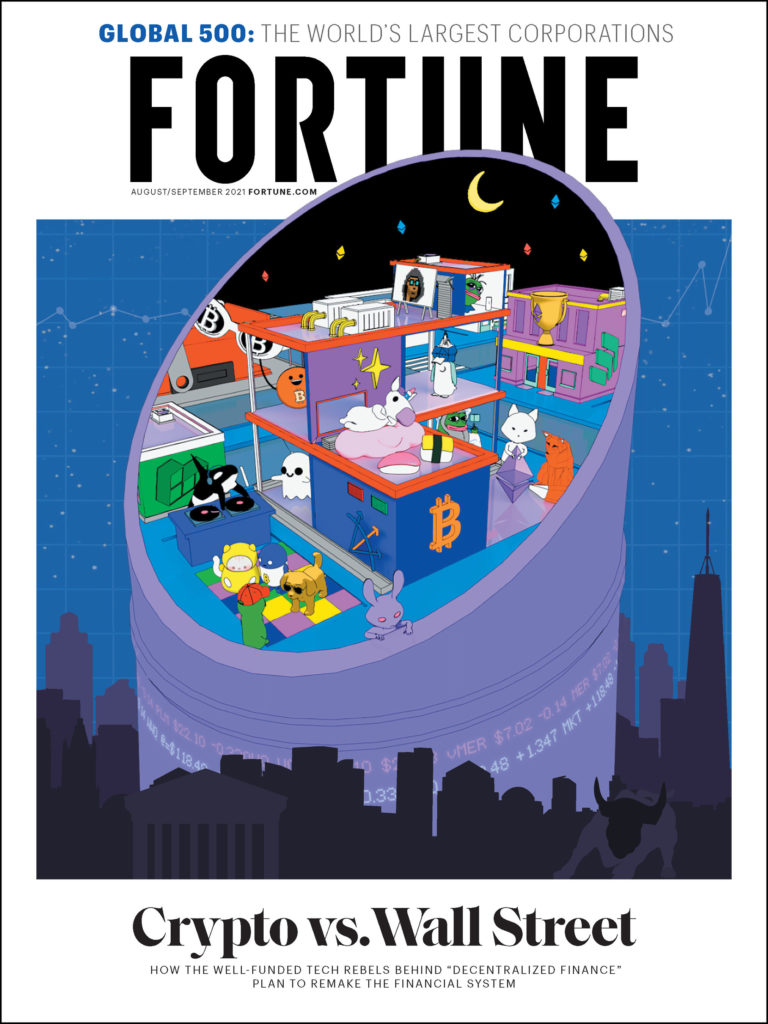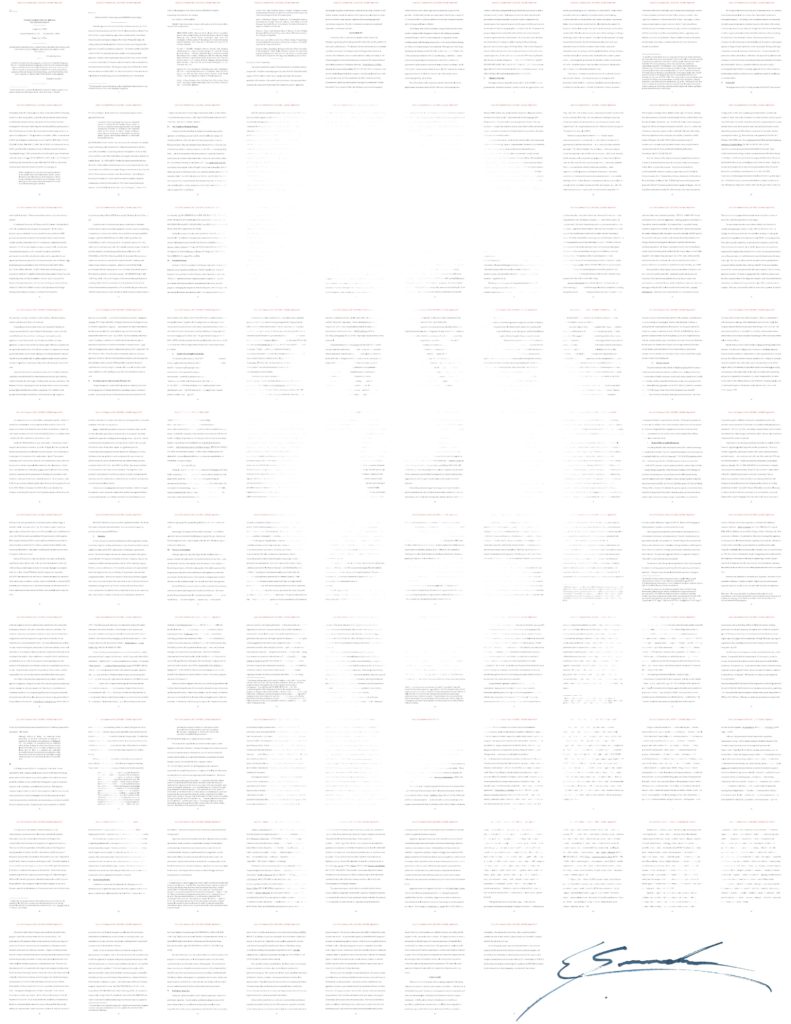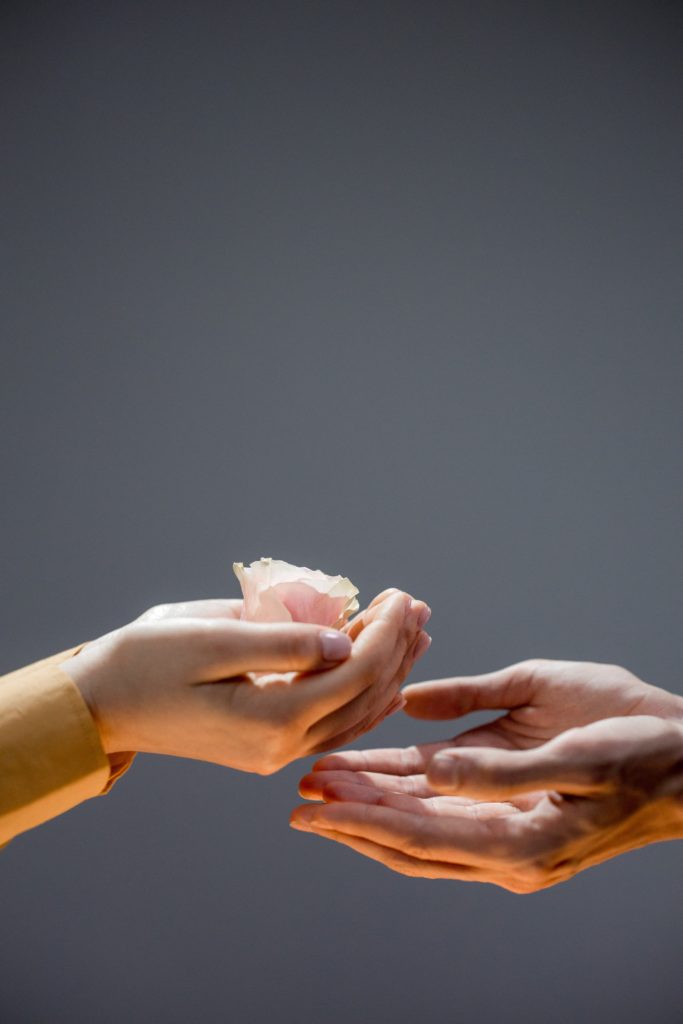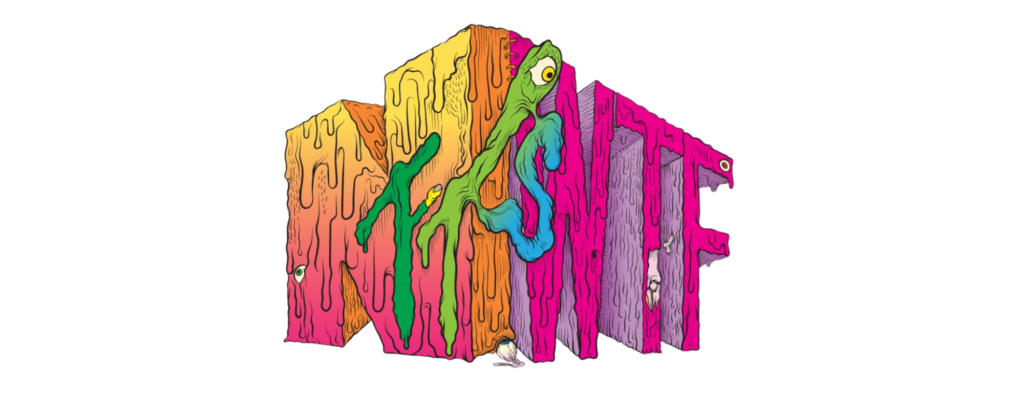Featured Image Photo Credit: PleasrDAO
Pplpleasr kindly sat down for an interview with NFTs.wtf at the Non-Fungible Castle event in Prague. Coincidentally, we sat down in front of the original Doge meme NFT and started our discussion about the Shiba Inu dog that also happened to be there. We dove straight into PleasrDAO and the most famous meme of all time that they recently acquired.
Pplpleasr: Part of why PleasrDAO was interested in buying the Doge meme in the first place-
PleasrDAO probably doesn’t need any introduction, but they originally were formed to purchase my first auction which was the x*y=k piece. And because all of that went to charity, that kind of inspired a lot of why PleasrDAO are so gravity-oriented towards charitable aspects.
And just the fact that this [Doge] is one of the most iconic memes to ever exist, probably the most iconic- itself is already a really good selling point. Kabosu is the name of the dog, and KabosuMama is her owner’s Twitter handle, and Instagram handle.
So the Japanese woman who owns Doge, she was donating part of the proceeds to all these different charities. So obviously, PleasrDAO are like, “Hello, we need this piece!” Not only is it culturally and historically significant around meme culture, but it also has a charitable aspect to it. It’s perfect, literally. And so that’s what made us really want to go after the piece at any price. At whatever price, we need it.
And we got really lucky because that was around the time when Bitcoin and Ethereum had a dip. A lot of people were kind of scared, so there’s a mini bear market. At the time, it was a lot of money, and it was during bad market times. And it was a lot of money, almost 2000 ETH. But they got it for a steal. I still think so; we all thought so at the time. I mean, it made news, right? Because we were like, “oh my God, they bought this meme for $4 million.” Now looking back, that’s so cheap. Because this is back in June, and now just four months later, we’re regularly seeing punks and stuff are going for $4 million. Like it’s literally nothing. Owning the NFT of the most iconic meme of all time for $4 million is literally nothing.
Rami: Yeah, that’s a good point.
Pplpleasr: And then that’s part of what makes this group so prolific, is that they are a group of people who have a really good eye for investment. But at the same time, I think it’s lucky that the element that really catalyzed it is the charity aspect.
Rami: That’s what I love about it. Charity can only be helped so much with money. Awareness is really a huge component.
Pplpleasr: I mean, I love talking about charity. Obviously, these are just the values that I grew up with. I try not to talk about it too much in my career because I don’t want people to think that I’m virtue signalling. But what made me tell people in PleasrDAO that we need to go after this piece is because part of it was going to be donated to charity. That’s so important to me. I said this is a theme that we need to keep consistent within our PleasrDAO acquisitions; it needs to be, at least as long as I have a voice that affects what they do. We need to stay true to what originally inspired the DAO, which is my idea of using crypto as a superpower and sharing with others in a positive way. And to me, that means charity.
And you know, I don’t discriminate either; I have different ones now like. Obviously, the first [NFT] I did was for anti-Asian violence. The second one I did was a mini one- mini being like six figures, like half a million, and it was for autism research. And then the most recent one that I did, which was a large amount of money, almost $700,000, was the Fortune Pleasr Fund. I made it with Fortune Magazine, and it’s supporting free press and journalism. It also ties back nicely to when PleasrDAO bought the Edward Snowden NFT for $5.5 million, and all of that went to freedom of the press.
You know, these are all circling values that we think are important, like internet privacy. Obviously, I support free journalism. You’re a journalist, and I’m sure you understand. And not related to PleasrDAO, I worked with Fortune Magazine. And then we did the NFT drop. And then we created this fund, and now it supports these organizations that are supporting free journalism. And each of them got around a $165,000 grant, which is pretty good.

Photo Credit: Fortune Magazine, Art by Pplpleasr
Rami: That’s really good.
Pplpleasr: And, you know, obviously they were super grateful. And I’m just glad that it’s setting off this positive flywheel, or like a spin-wheel of positivity. And it’ll show people that crypto can be used for good.
Rami: That encapsulates it perfectly because it’s beyond the money that’s been contributed through iconic pieces like the Snowden piece. They speak to the issue that’s going on, and they make people look to find out what happened. They want to know the story. And then they find out the charitable aspect behind it, and that promotes awareness. And beyond that, these charities that you’re contributing towards, showing them the potential that NFTs have to be able to advance these causes.
Pplpleasr: And what better time and platform and place do we have than right now to amplify these things? Because people are going long on a bull run, it doesn’t hurt to share that with other people. And I feel like it takes a certain amount of privilege and access to first-world resources for people to even be involved in cryptocurrency. So if I have a way or outlet for that to funnel out to other channels, I’m all for it. Seriously, I’m not virtue signalling; it’s just something that I’ve been brought up with. You know, my parents have been supporting underprivileged families in Africa since I was young, and we do volunteer activities together. When I was in high school, I took a trip to Cambodia to help build houses and a village, so you really learn a lot about humanity. And I feel like understanding wealth in a Web3 way is not just creating it, but also being able to share it.
Rami: And there are new ways to be able to do that and a lot of greater reach with which you can do it. You’re not isolated to the communities that you live in; you can appeal your cause to people who love Japanese culture, for example.
Pplpleasr: Yes! And that is one of the ways that I speak to my audience. I love anime. I love Japanese commercials and Japanese culture with that very over-the-top element. I feel like it’s very effective in spreading information. And so that’s also part of the culture that I indulge in; I find it effective for spreading the type of information that I want to get out. In the beginning days, it was around crypto and De-Fi. And then now that I have that platform and voice, I’m going to use it for other things I care about, like humanity things.
Rami: Humanity things, restoration of the arts, and free Journalism. There’s a lot of causes out there.
Pplpleasr: There is. And as long as my ability to have a platform and a voice continues to exist, I will use that for as many different outlets and funnels and different causes.
Rami: Fantastic. And so, do you find the cause first, or do you find the NFT first?
Pplpleasr: It depends. Sometimes it could be the cause that comes first, and then sometimes, NFT inspires me to look into the cause so that it could be one or the other. And I feel like as long as they’re both positive things, it doesn’t matter.

Photo Credit: Stay Free by Edward Snowden, PleasrDAO
Rami: Yeah, of course. I’m just interested in the process.
Pplpleasr: It’s similar to a lot of the visuals that I create. I’m a strong believer in complementary audio-visual experiences. But sometimes I’ll hear the audio first, and then I’ll see the visual, and then I’ll imagine visuals to pair it with, and then I create it. Or sometimes, I create the visuals first. And then I’ll think, what kind of audio does this pair nicely with? You know? So, it’s like that chicken or the egg thing. One can affect the other.
Rami: Interesting. It sounds like it’s a lot of fun, you know, going around finding these causes. And to your earlier point, I didn’t get any impression of virtue signalling, actually. And I appreciate you mentioning that I’m going to try to apply that mindfulness to myself.
Pplpleasr: I always just try to be mindful of all of the audiences that could be exposed to this.
Rami: But nonetheless, I think with what you do, you promote charitable causes and you incentivize them.
Pplpleasr: I mean, I do genuinely believe in them. And it’s all about spreading awareness and education. It’s like, I don’t think anybody who eats meat is a bad person; it’s that people just don’t know. They just don’t know what’s happening behind the scenes; nobody educated us. Capitalism is built on the opposite of that, you know.
Rami: So let me ask you this. Do you feel like cryptocurrency-
Pplpleasr: I don’t think cryptocurrency is anti-capitalism. I think it’s hacking capitalism.
Rami: I was going to ask if you think it’s capitalism at its extreme.
Pplpleasr: Yes, it is. It’s capitalism with efficiency. That’s how I would describe it.
Rami: I like that. Yeah. Because you have transparency.
Pplpleasr: It’s literally a free for all game. It’s like, look, it’s all there. Yeah. But here, we’ve created a system that removes all the middlemen. There’s none of that unfair bullshit that’s going on in our systemic society as we know it today. If you’re smart enough, or lucky enough, because you don’t have to be smart, you could just be lucky like me. If you’re lucky enough to come out early, then it’s all yours to take.
Rami: Yeah, it is. And I actually watched something about this: Is success based on luck or effort?
Pplpleasr: Both
Rami: Oh, it’s definitely both. It’s like 95% effort and 5% luck. But that 5% is what you need.
Pplpleasr: Oh, absolutely. Yeah. Because after this past year, people were like, “Oh, you’re so smart and talented” and stuff. But just a year ago, without that element of luck, I was literally jobless and doing nothing in my apartment in New York, and I was worried about paying rent. So luck is so important. And I don’t want to take any credit for that. I just happened to be in the right place at the right time. And I hope I can use my voice for good.

Photo Credit: Photo by Ron Lach from Pexels
Rami: I respect that a lot. I think you introduced that as an idea and as a cornerstone, like an ideology. I really admire that.
Pplpleasr: I hope it persists and inspires other people to think in this way, knowing that starting from Web3, we have a chance to start over. And it’s not a zero-sum mindset anymore. I feel like in the previous Web2 capitalistic world, it’s very competitive, we have limited resources, or rather we’re taught to think we have very limited resources. And because the middlemen are literally taking everything, it taught us to have this very zero-sum mindset of not sharing. But Web3 is actually the opposite of that. I mean, just take the simple concept of a token, right? The more people that buy it, the higher the value goes up. And obviously, there are other things to expand on that. But it’s that kind of positive-sum mindset.
Rami: It is.
Pplpleasr: And I think a lot of people don’t realize that by sharing the wealth with others, you could create more of it, even if it’s not in a material sense, but in other senses.
Rami: I see why older people have a hard time accepting it because you’re literally creating money out of nowhere if you create supply and demand and you have an efficient monetary system. But I think NFT’s and cryptocurrency really give us an ability to do social good and to advance these causes. And I think you really recognize that too. And you mentioned something about inspiration; I’m one of the people who can say I’m taking inspiration from you.
Pplpleasr: Thank you!
Rami: No, really. I really think technology gives us an ability to do good like we’ve never done before.
Pplpleasr: And with efficiency, right? Because in the past, people can have the intention of doing good, but it wasn’t efficient and not transparent because it’s not on the blockchain. Now you literally know where this money is going and how it’s being used. Let’s amplify that, you know, maximize it. Because look, we’ve discovered something very unique and revolutionary, it truly is the technology. If you believe in it like I do, and I’m sure you do. Everybody does.
But it’s true that it could maybe be weaponized for other things. And I think it’s very important for the early founders to get out the right message of positivity, that it’s not a man eats man game. You know, there’s more to life than just material goods. And that actually sharing positivity and happiness and wealth with others, can create more wealth in more ways that you don’t even realize because you were so brainwashed by the previous world of capitalism.
Rami: And that’s, that’s how I was like, that’s how I was, I used to think to myself, like, Okay, I’m gonna work hard. And maybe when I’m 60 years old, I’ll have a few million dollars.
Pplpleasr: And buy a nice house.
Rami: Buy a nice house, But maybe then I can start doing good in the world. MAYBE then.
Pplpleasr: Yeah, but Web3 teaches you, you don’t have to wait until then. People were always like, “oh, [Pplpleasr], people usually become entrepreneurs first.” And then you know, the whole Bill Gates story. They made it first, and then they started donating. “Why is it that you just started doing it from the beginning?” Because that’s the beauty of Web3, that you don’t have to think in the way the old world thinks anymore.
Rami: You get to reinvent it.
Pplpleasr: You get to reinvent it. And if I say I’m happy sharing my wealth on my way to the top and bringing everyone else with me, who’s to tell me that I can’t do that?
Rami: No one at all. And I don’t think anyone would. I think people really respect and admire it. And I do too. I think it inspires people to do more of the same. Because it shows that- and this is something that you can use to appeal to people’s basest instincts- even if you are looking for your own self-interest, this shows that doing social good is actually something that…
Pplpleasr: -Is also for your self-interest!
Rami: Exactly.
Photo Credit: RODNAE Productions from Pexels
Pplpleasr: First, I think it does wonders for your mental health. And this is obviously something that’s been largely ignored previously, you know, and something that people should talk about, and realize that actual currency is your mental well-being, you know. And Web3 is not just a material sense anymore, right? Cryptocurrency, tokens, whatever, that’s just the beginning of it. It’s a way more philosophical thing that we have discovered here that we can share and amplify, I think.
Rami: I don’t think it’s ever happened before, and we sit at a unique crossroads to be able to take advantage of it.
Pplpleasr: Absolutely.
Rami: And to build these things. And I get the impression from you that if you were to end up having a monumental impact and not as monumental a stack of money, then you would be happy.
Pplpleasr: I’m perfectly fine with this.
Rami: I think there should be more people like that.
Pplpleasr: I think there will be, with more discovery of this new paradigm.
Rami: Yeah, and with the stories being told.
Pplpleasr: And yeah, this girl recently told me, “Oh, I have some friends who were curious about the NFT space, and they were entering it.” And they just somehow stumbled upon like my videos and stuff. And they’re like, “Oh, we’re feeling very inspired by this being used for good.” And she was just saying that she’s glad that those are the kind of videos that people can stumble upon as an entry point into the space because it starts off on a positive note, right? I feel like what also sets off this bull run differently from the past ones is, I think past ones are more focused on monetary value, like getting rich. And I feel like this time, there is other wealth that’s not a financial one that is being circulated. And people can feel that. We’re all humans at the end of the day.
Rami: Yeah, we’ve been able to feel it virtually. But now, with these physical events, you get also to reinforce them personally. I met Irina Karagyur here; she’s really cool. She works with Polkadot and Kusama. They’re introducing NFT’s to those networks. They’ve built the Unique Network, and they’ve worked with the United Nations while bringing in social causes and advancing those. I’ve connected with her a few times before; she’s really great too.
Pplpleasr: Yeah. And I love that. And I hope that this can continue, you know if there are enough people like you and me who actually care about this, and we are amplifying- basically, I’m not going to shut up about it. I’m talking and spreading this message as much as I can.
Rami: More power to you.
Pplpleasr: Thank you.
Part 2 of this interview will follow soon, delving deeper into Pplpleasr’s philosophical ideas and interpretations of the Web3 space we find ourselves in. Until then, follow Pplpleasr on Twitter and Instagram, and also take a look at her beautiful website!



